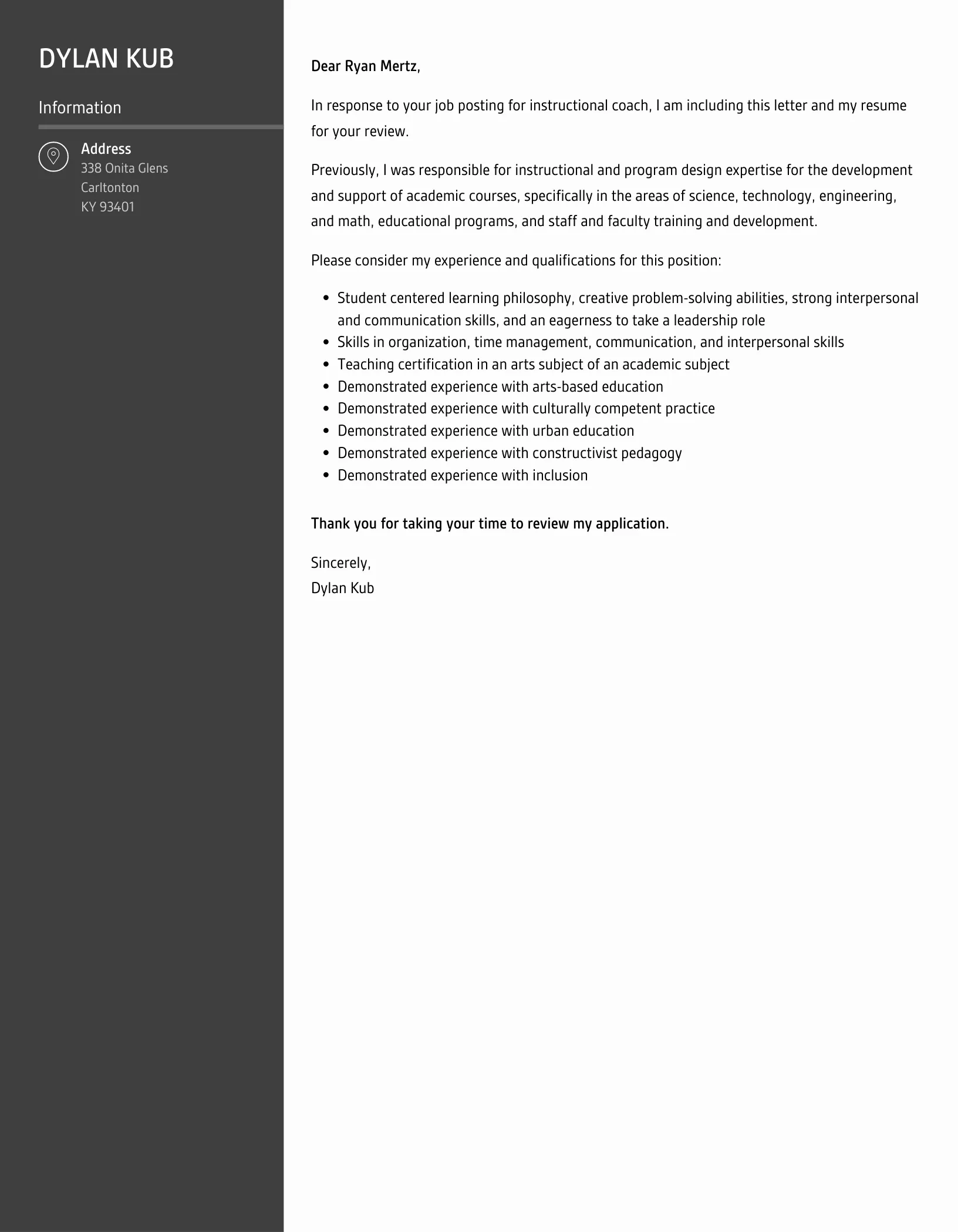Landing your dream instructional coaching position starts long before the interview – it begins with a compelling cover letter. A well-crafted cover letter is your chance to make a strong first impression, demonstrating why you’re the perfect fit for the role and the school. It’s not just a formality; it’s a strategic tool to highlight your skills, experience, and passion for instructional coaching. This guide will unveil the secrets to writing a cover letter that will grab the attention of hiring managers and set you apart from the competition. We’ll explore essential elements, providing actionable tips and examples to help you ace the role and secure your dream job.
Highlighting Your Skills & Experience
Your cover letter is an opportunity to showcase the skills and experience that make you an exceptional instructional coach. This section should focus on your relevant qualifications and how they align with the specific requirements of the job. It’s about connecting your past experiences to the future role. Use action verbs and specific examples to demonstrate your capabilities. Avoid generic statements; instead, highlight achievements and quantify your impact whenever possible. Remember, the goal is to show, not just tell, why you are the best candidate.
Experience Section
In the experience section, detail your previous roles, emphasizing those that directly relate to instructional coaching. Briefly describe your responsibilities, but spend more time on the outcomes you achieved. Think about the specific programs you’ve implemented, the teachers you’ve supported, and the improvements you’ve seen in student performance. Highlight any leadership roles you’ve held, such as leading professional development workshops or mentoring new teachers. Your experience section should demonstrate your hands-on ability to improve teaching practices and student outcomes.
Quantify Your Accomplishments
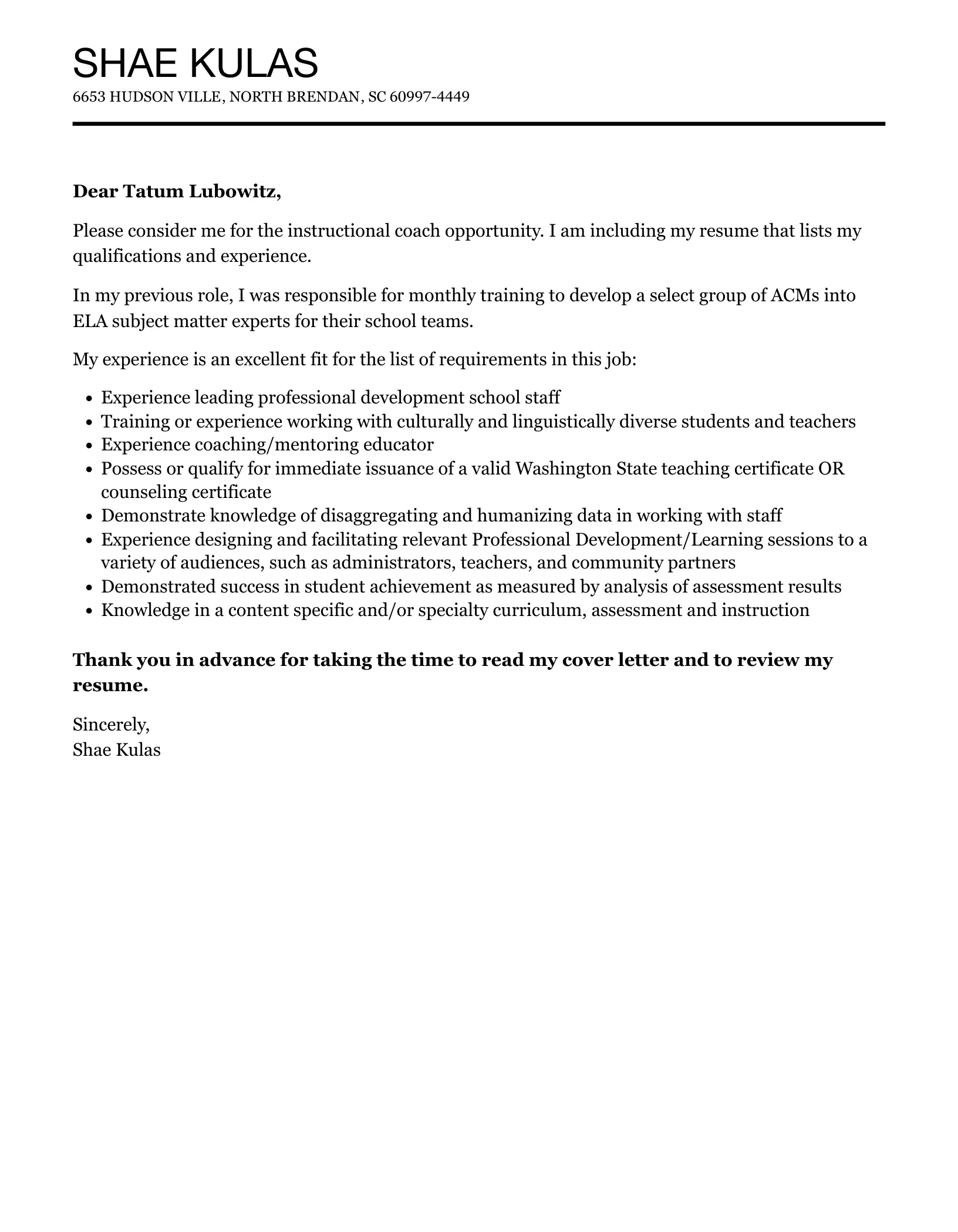
Numbers tell a story. Instead of saying you improved teacher performance, state the percentage increase in teacher satisfaction scores or the specific student achievement gains after implementing a new teaching strategy. Did you help teachers integrate technology effectively, and if so, what was the resulting improvement in student engagement or test scores? Did you reduce teacher turnover by providing effective support and mentorship? Quantifiable results provide concrete evidence of your impact and make your cover letter much more compelling. (See image: quantify-achievements.webp)
Tailoring Your Letter
A generic cover letter won’t cut it. Tailoring your letter to each specific job is crucial for demonstrating your genuine interest and understanding of the school’s needs. This shows you’ve done your research and are not just sending out a mass application. It is a clear indication that you are a good fit, and that you are interested in the school. This extra effort can significantly increase your chances of getting an interview.
Research the School
Before you start writing, thoroughly research the school. Visit their website, read their mission statement, and explore their curriculum. Understand their values, any current initiatives, and the specific challenges they might be facing. Look for information about the school’s demographics, student population, and any recent achievements or areas for improvement. This research will inform your letter, enabling you to connect your skills and experience to the school’s unique context. (See image: school-research.webp)
Address the Specific Needs
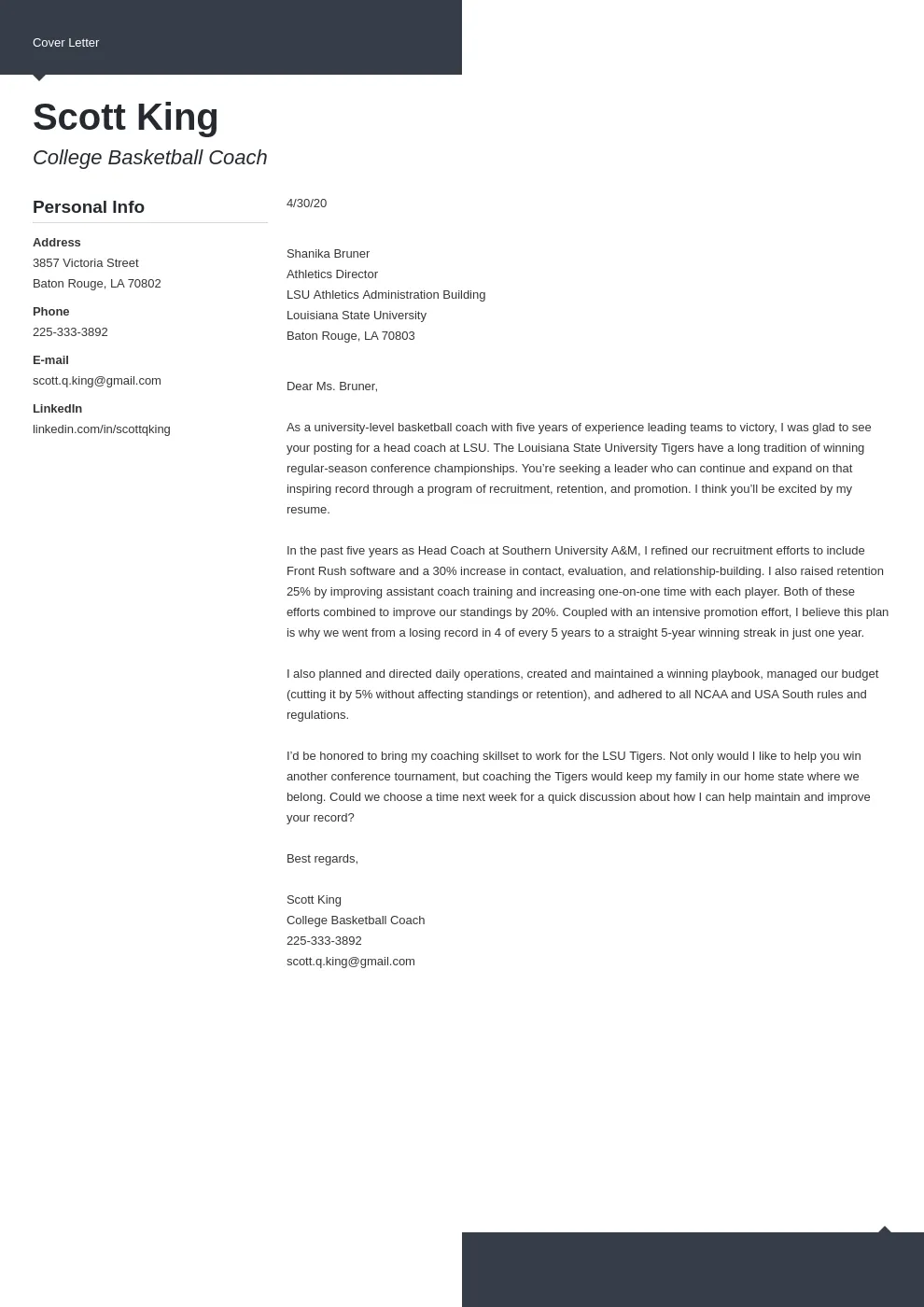
Once you’ve researched the school, analyze the job description carefully. Identify the key requirements and the specific challenges the school is looking to address. Then, tailor your cover letter to demonstrate how your skills and experience align with these needs. Provide concrete examples of how you’ve successfully addressed similar challenges in the past. This targeted approach proves you understand their needs and can provide immediate value to the school. (See image: coach-skills.webp)
Showcase Your Passion
Instructional coaching is more than just a job; it’s a calling. Let your passion for education shine through your cover letter. This section is where you can articulate why you love what you do and what motivates you to support teachers and students. You want the hiring manager to sense your excitement and dedication, as these qualities are essential for success in this role.
Express Your Coaching Philosophy
Describe your coaching philosophy. What are your core beliefs about teaching and learning? How do you approach supporting teachers and fostering their professional growth? Do you believe in a collaborative, supportive, or transformative approach? Share your values and explain how you create a positive learning environment. Expressing your coaching philosophy demonstrates your understanding of the role and your commitment to making a positive impact on the school community. (See image: coaching-philosophy.webp)
Demonstrate Your Understanding
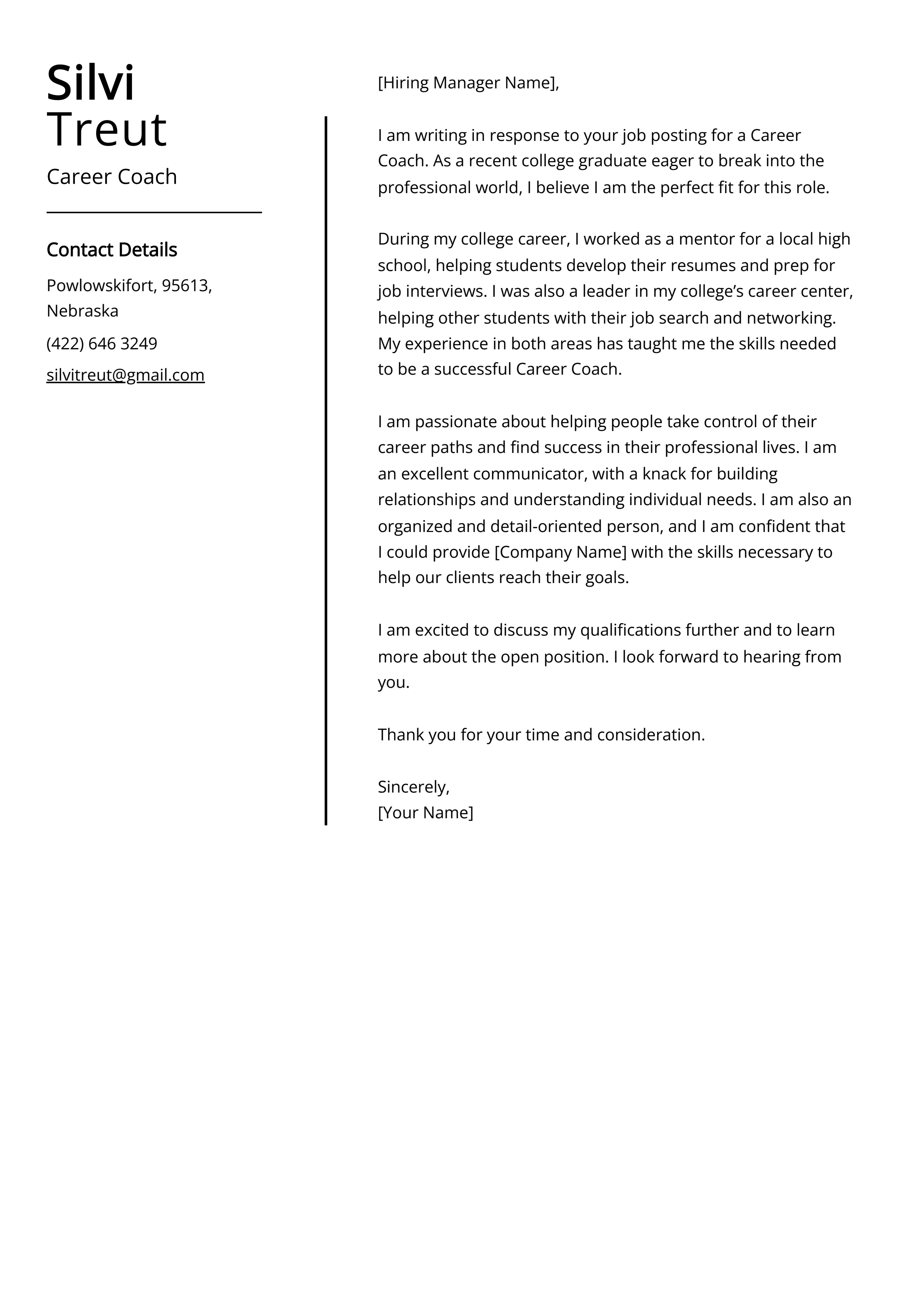
Show that you understand the challenges and opportunities of instructional coaching. Mention current educational trends and how you plan to incorporate them. Also, express your understanding of how coaching can improve student outcomes. Use this section to illustrate your knowledge of effective teaching strategies and how you would support teachers in implementing them. Emphasize your commitment to continuous learning and professional development.
Formatting and Structure
A well-formatted cover letter is as important as its content. It should be easy to read and visually appealing. Proper formatting shows attention to detail and professionalism. Use a clear, readable font and maintain consistent formatting throughout the document. Proofread carefully to eliminate any errors in grammar and spelling. (See image: cover-letter-structure.webp)
Proper Salutation
Address your cover letter to a specific person whenever possible. Research the name of the hiring manager or the principal and address them directly. If you can’t find a name, use a professional salutation like “Dear Hiring Committee.” Avoid generic greetings like “To Whom It May Concern.” Using a name personalizes your letter and shows that you’ve put in the extra effort. It’s a simple step that can make a big difference.
Clear Paragraphing
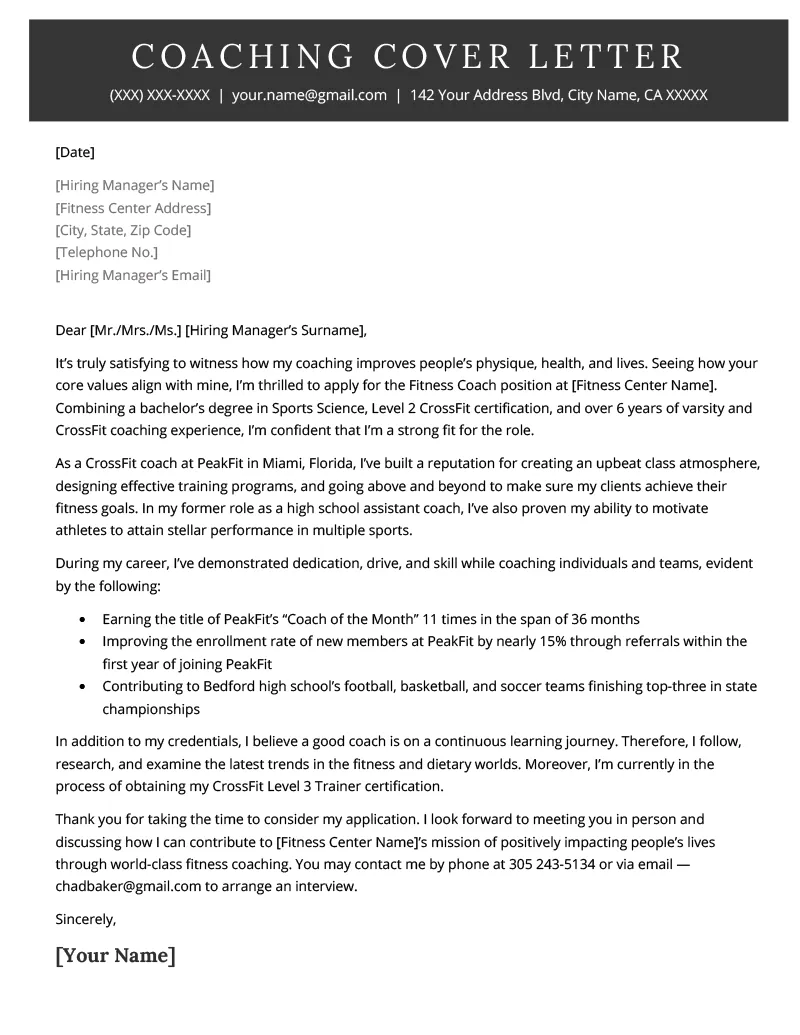
Keep your paragraphs concise and focused. Use clear topic sentences to introduce each paragraph’s main idea. Break up long blocks of text to make your letter easier to read. Use bullet points to highlight key skills and accomplishments. Ensure the structure of your cover letter is logical and easy to follow. This helps the reader quickly grasp the key points and understand why you are a strong candidate for the role.
Call to Action
End your cover letter with a strong call to action. Express your enthusiasm for the position and reiterate your interest in an interview. Thank the hiring manager for their time and consideration. Provide your contact information and make it easy for them to reach you. A strong call to action encourages them to take the next step and move your application forward. (See image: call-to-action.webp)
Writing a winning cover letter for an instructional coach position requires careful planning and execution. It involves highlighting your skills, tailoring your message, showcasing your passion, and presenting your qualifications in a professional manner. By following these secrets, you can create a cover letter that will capture the attention of hiring managers, demonstrating why you’re the ideal candidate. Good luck with your application, and remember, the perfect cover letter is the first step towards securing your dream job. (See image: instructional-coach-cover-letter.webp)
Remember to review and revise your letter carefully before submitting it. Make sure to customize each cover letter to match the specific requirements of the job and the school’s values. Proofread for any grammatical errors or typos. With a well-crafted cover letter, you’ll be well on your way to landing an interview and becoming a successful instructional coach. (See image: instructional-coach-success.webp)
